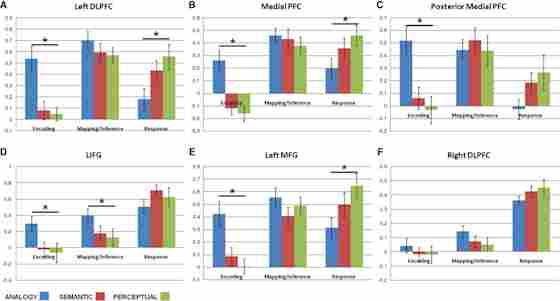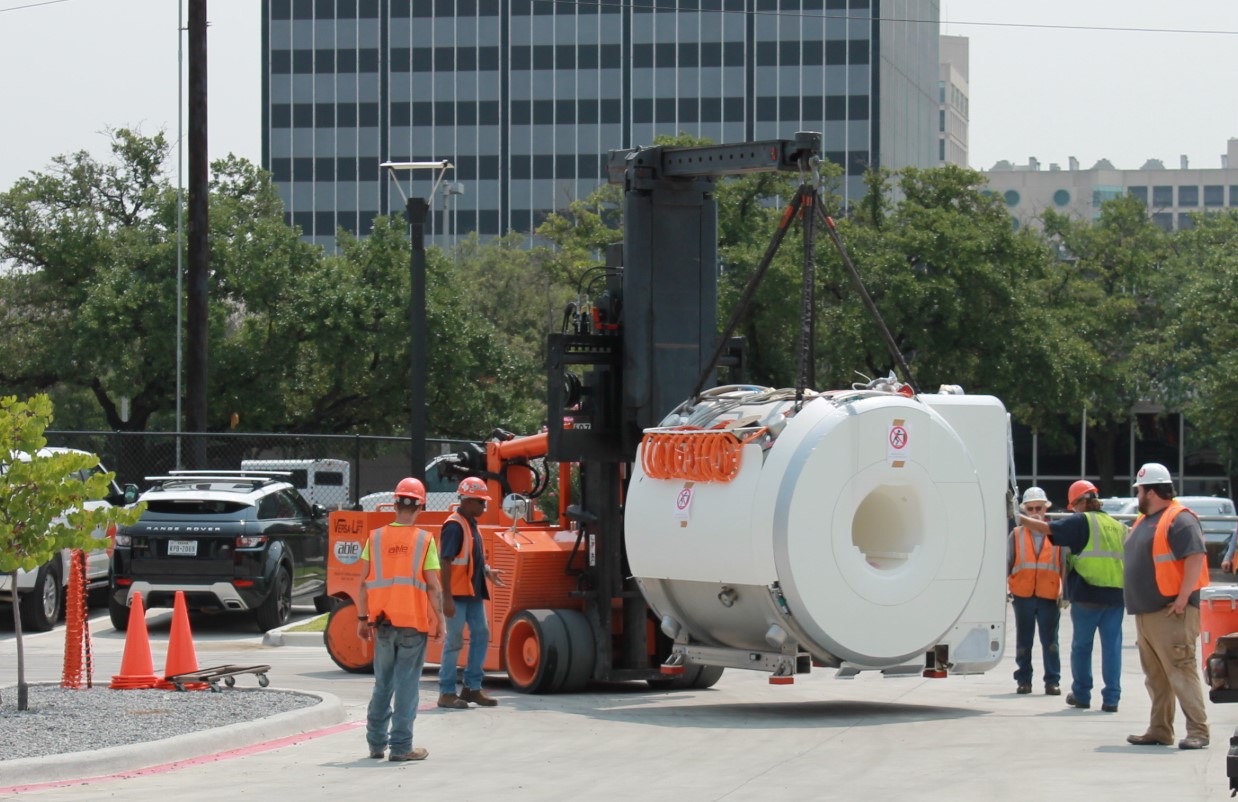Overview
Researchers compared reasoning about four-term analogy problems in the format (A:B::C:D) to semantic and perceptual control conditions that required matching without analogical mapping, investigating distinct phases of the problem-solving process divided into encoding, mapping/inference, and response. Using fMRI, we assessed the brain activation relevant to each of these phases with an emphasis on achieving a better understanding of analogical reasoning relative to these other matching conditions. We predicted the analogical condition would involve the most cognitive effort in the encoding and mapping/inference phases, while the control conditions were expected to engage greater prefrontal cortex (PFC) activation at the response period. Results showed greater activation for the analogical condition relative to the control conditions at the encoding phase in several predominantly left-lateralized and medial areas of the PFC. Similar results were observed for the mapping/inference phase, though this difference was limited to the left PFC and rostral PFC. The response phase resulted in the fastest and most accurate responses in the analogy condition relative to the control conditions. This was accompanied by greater processing within the left lateral and the medial PFC for the control conditions relative to the analogy condition, consistent with most of the cognitive processing of the analogy condition having occurred in the prior task phases. Overall, findings demonstrate the left ventral and dorsal lateral, medial and rostral PFC are important in encoding relational information, mapping and inference processes, and verification of semantic and perceptual responses in four-term analogical reasoning.
Activation within six Regions of Interest (ROIs) across the task phases. (A) Modulation of activation was observed within the left DLPFC at the encoding period, where analogy trials were associated with significantly greater activation, while at the response phase, analogy trials showed significantly less activation relative to the other conditions. (B) The same pair of effects were observed in the medial PFC. (C) A posterior medial PFC region was modulated by analogy trials at the encoding period. (D) The LIFG showed significant modulation by condition with analogy trials showing greater activation at both the encoding and the mapping/inference phases. (E) The left MFG exhibited the same pattern observed in the left DLPFC and medial PFC. (F) No significant modulation by condition was observed within the right DLPFC.




